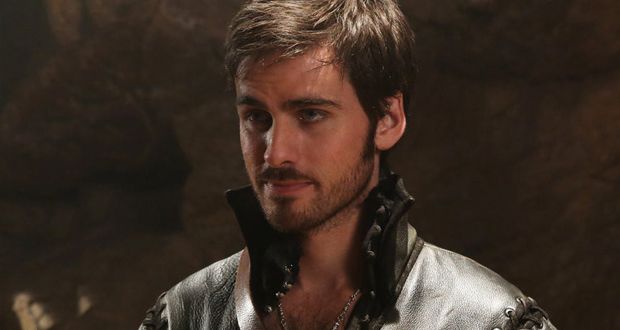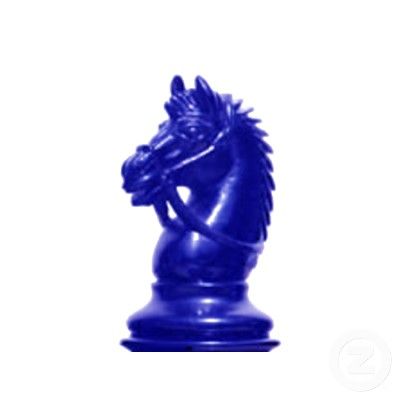Jovanius Marcus Primus
Oct 13, 2013 10:43:52 GMT -5
Post by Caligusto on Oct 13, 2013 10:43:52 GMT -5
JOVIANUS MARCUS PRIMUS

Gender - Male
Age - 29
Birthday - March 3, 1510
Noble House - Jovianus
Skills - Leadership, planning, logistics, swordplay, tactics and strategy
Play By - Colin O'Donoghue
Immediate Family Members - Jovianus Henricus Timaeus - Father; Jovianus Aurelia Corialania - mother [ Deceased ]
Personality
In many ways, Marcus is the quintessential noble man of Arton. He is handsome, well-built, and capable. When he speaks, it is with a clear and confident voice. When he moves, it is with purpose. When he acts, it is decisive. He can interact with other nobles easily and capably and entertaining guests is no challenge to him. When he is upon a horse, it is as though the beast was merely an extension of him along with the blade in his hand. The public likes him and nobles find him charming. Emperor Henricus could not have asked for a better son.
Unless, that is, he were aware of Marcus’s other qualities. Like his father, Marcus is decisive and will not hesitate to perform actions for the betterment of the Empire, even if it means others must suffer. The needs of the many, after all, are greater than the needs of the one. The Empire must endure. The Empire must stand as it always has.
Thus, the charismatic prince has a darker side to him. Marcus is cunning to the point of being devious and manipulative to boot. A great deal of work is to be done if the Empire is to survive and it cannot be done with charisma alone. If he must use someone to his ends, he will. If someone must die for the survival of his kind, then so be it. It is only hoped that he will not lose his humanity to save that which he loves.
History
Marcus was the first born son of Henricus, which gave his father a great sense of pride. Indeed, given the fact that Marcus’s mother bore no more sons was testimony that Henricus’s masculine qualities had been fully passed onto his son. However, this did not necessarily translate to an easy childhood for Marcus. His father had high expectations of his Prince for he would be the perfect man to succeed the throne and continue the glories of the Empire.
For a time, Marcus accepted his fate. He received the best education money could buy and was allowed to witness firsthand many aspects of manhood and leadership. Even as a child, he was encouraged to watch Imperial Assembly in session and men in combat. The latter, naturally, was far more exciting to the young boy. Marcus also demonstrated an early love of horses, spending many hours a day tending to horses and mastering the craft of horsemanship.
However, while boys his age often got to play games, his father’s demands for lessons, instruction and training were paramount. Indeed, Marcus would often have to sneak away to have any fun. It was in doing this that he met his best friend Lucius, the son of an influential assemblyman. The two of them had a great many adventures raging from pilfering food from the kitchens, sneaking looks and kisses from pretty girls and daring adventures in which they ended up hurt or in trouble with his Imperial Majesty. It was Marcus’s mother that reminded him that Henricus was not all that different when he was boy, leading to leniency in punishments.
Naturally, as he Marcus got older, the need to be wild began to fade and he took his lessons more seriously. His tutor was of particular influence, encouraging him to always look at the larger picture and toward the future. Indeed. It was a theme in many lessons. So often that Marcus began to see a pattern. The nations, kingdoms and empires of the past that exhibited uncontrolled growth always met their downfall. The Empire was going down a similar path. It was becoming too large for its own good. The tutor was both pleased and relieved the young Marcus picked up on it so quickly.
That the Empire was on a path to its own destruction disturbed him deeply. He attempted to tell his father, but the Grand Emperor of Arton would not have it. The Empire would endure and never fail in his eyes. Dismayed that his father was blind to the coming destruction, Marcus realized that he would have to save the Empire himself.
But what did that entail? What could he do to save the Empire? It was clear that he needed the wisdom of leaders older and more experienced than he. A handful of senior and several junior assemblymen shared the same concerns. Marcus began to hold meetings with them in private, devising a plan to save their home. The ideas put forth were painful, but practical. Emperor Henricus would never agree to them.
Nonetheless, Marcus had a plan for the future. However, now he had another concern. Did he wait until his father’s passing or implement his plans now? To do the former could mean too little and too late and to do the latter could spell treason.
Out of Character:
Cal - Lots - EST
---------------
designed by valitrix @ caution 2.0

Gender - Male
Age - 29
Birthday - March 3, 1510
Noble House - Jovianus
Skills - Leadership, planning, logistics, swordplay, tactics and strategy
Play By - Colin O'Donoghue
Immediate Family Members - Jovianus Henricus Timaeus - Father; Jovianus Aurelia Corialania - mother [ Deceased ]
Personality
In many ways, Marcus is the quintessential noble man of Arton. He is handsome, well-built, and capable. When he speaks, it is with a clear and confident voice. When he moves, it is with purpose. When he acts, it is decisive. He can interact with other nobles easily and capably and entertaining guests is no challenge to him. When he is upon a horse, it is as though the beast was merely an extension of him along with the blade in his hand. The public likes him and nobles find him charming. Emperor Henricus could not have asked for a better son.
Unless, that is, he were aware of Marcus’s other qualities. Like his father, Marcus is decisive and will not hesitate to perform actions for the betterment of the Empire, even if it means others must suffer. The needs of the many, after all, are greater than the needs of the one. The Empire must endure. The Empire must stand as it always has.
Thus, the charismatic prince has a darker side to him. Marcus is cunning to the point of being devious and manipulative to boot. A great deal of work is to be done if the Empire is to survive and it cannot be done with charisma alone. If he must use someone to his ends, he will. If someone must die for the survival of his kind, then so be it. It is only hoped that he will not lose his humanity to save that which he loves.
History
Marcus was the first born son of Henricus, which gave his father a great sense of pride. Indeed, given the fact that Marcus’s mother bore no more sons was testimony that Henricus’s masculine qualities had been fully passed onto his son. However, this did not necessarily translate to an easy childhood for Marcus. His father had high expectations of his Prince for he would be the perfect man to succeed the throne and continue the glories of the Empire.
For a time, Marcus accepted his fate. He received the best education money could buy and was allowed to witness firsthand many aspects of manhood and leadership. Even as a child, he was encouraged to watch Imperial Assembly in session and men in combat. The latter, naturally, was far more exciting to the young boy. Marcus also demonstrated an early love of horses, spending many hours a day tending to horses and mastering the craft of horsemanship.
However, while boys his age often got to play games, his father’s demands for lessons, instruction and training were paramount. Indeed, Marcus would often have to sneak away to have any fun. It was in doing this that he met his best friend Lucius, the son of an influential assemblyman. The two of them had a great many adventures raging from pilfering food from the kitchens, sneaking looks and kisses from pretty girls and daring adventures in which they ended up hurt or in trouble with his Imperial Majesty. It was Marcus’s mother that reminded him that Henricus was not all that different when he was boy, leading to leniency in punishments.
Naturally, as he Marcus got older, the need to be wild began to fade and he took his lessons more seriously. His tutor was of particular influence, encouraging him to always look at the larger picture and toward the future. Indeed. It was a theme in many lessons. So often that Marcus began to see a pattern. The nations, kingdoms and empires of the past that exhibited uncontrolled growth always met their downfall. The Empire was going down a similar path. It was becoming too large for its own good. The tutor was both pleased and relieved the young Marcus picked up on it so quickly.
That the Empire was on a path to its own destruction disturbed him deeply. He attempted to tell his father, but the Grand Emperor of Arton would not have it. The Empire would endure and never fail in his eyes. Dismayed that his father was blind to the coming destruction, Marcus realized that he would have to save the Empire himself.
But what did that entail? What could he do to save the Empire? It was clear that he needed the wisdom of leaders older and more experienced than he. A handful of senior and several junior assemblymen shared the same concerns. Marcus began to hold meetings with them in private, devising a plan to save their home. The ideas put forth were painful, but practical. Emperor Henricus would never agree to them.
Nonetheless, Marcus had a plan for the future. However, now he had another concern. Did he wait until his father’s passing or implement his plans now? To do the former could mean too little and too late and to do the latter could spell treason.
Out of Character:
Cal - Lots - EST
---------------
designed by valitrix @ caution 2.0









